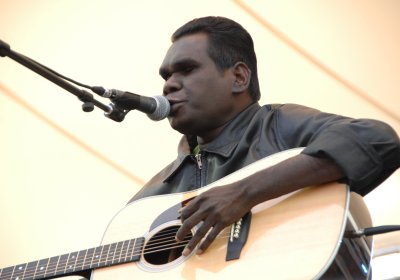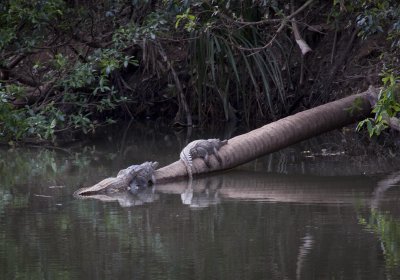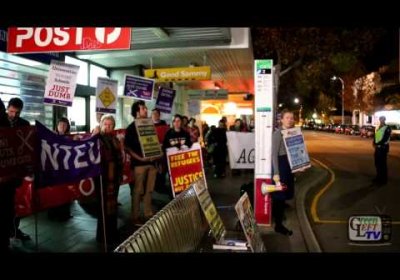This year marks 100 years since the opening of the Kahlin compound in Darwin, a place where Aboriginal children, stolen from their families, were forced to live and work.
The compound was closed in 1938, but lives on in the memory of many who were held there — many of whom are still in Darwin today, and would like the site to be recognised and protected as part of their heritage.
Indigenous
This is part two of an interview Green Left Weekly journalist Linda Seaborn conducted with Dr Bob Boughton who helped initiate a Cuban supported literacy program in the NSW town of Wilcannia. Part one of this interview can be read here.
***
How did it the literacy campaign change the lives of the graduates?
Nearly 60 years have passed since Totem 1, a British nuclear test in the Australian desert, was recklessly conducted in unfavourable meteorological conditions.
Nuclear testing of any sort, even in the most “controlled” of circumstances, is inherently abusive, a crime against the environment and humanity for countless generations to come. Yet the effects of Totem 1 were particularly bad, even by the warped standards of the era.
Garrumul: His Life & Music
Robert Hillman
2013, $65
Dr M Yunupingu, former Yothu Yindi frontman and Gumatj clan member, passed away on June 2 at his home community of Yirrkala, in north-east Arnhem Land.
It is often the case that we learn more about somebody’s life after they die. As it happened, the week Yunupingu died, I had bought a copy of a beautiful new biography of his nephew, Geoffrey Gurrumul Yunupingu, known more commonly as Gurrumul.
This is an abridged transcript of an interview Linda Seaborn conducted with Dr Bob Boughton who helped initiate a Cuban supported literacy program in the NSW town of Wilcannia. Part two of this interview can be read here.
***
Tell us about the Cuban “Yes, we can” literacy campaign model.
Representatives from the Environment Centre NT (ECNT) and the Amateur Fishermen’s Association of the NT (AFANT) travelled to Mataranka on June 13 to host a public meeting about water allocations in the region.
The Country Liberal Party government has made changes to the allocation process, which threatens the Roper River region’s environment, as well as pastoral and Indigenous interests.
Julia Gillard was greeted by a vibrant protest by students, unionists and Aboriginal activists when she spoke in Fremantle on June 12.
Visions in Black and White -
Images from Indigenous Australia
Redfern Community Centre, Sydney
Until June 24, 2013.
www.headon.com.au
"Ngurragah," says Barbara McGrady, and smiles. The word, pronounced "nuh-ruh-gah", is one of her favourite utterances. But this committed activist and community photographer won't be using it to describe her latest exhibition, being held as part of Head On, the second largest photography festival in the world.
The Obama administration appears to be getting closer and closer to approving the controversial Keystone XL Pipeline. The pipeline aims to transport tar sands oil from Alberta Canada to the United States.
Round Nine of the Australian Football League, held from May 24-26, was designated the “Indigenous Round” in honour of Aboriginal players and culture.
However, former Age sports journalist Trevor Grant writes that, despite progress, the AFL continues to block Aboriginal access to key aspects of the sport ― on and off the field. The article is slightly abridged from Grant's website What's The Score, Sport, where more of his writings on sport and politics can be found.
* * *
An important summit of global significance, held in Brazil May 16-20, has largely passed below the radar of most media outlets, including many left and progressive sources.
This summit was not the usual type, involving heads of states and business leaders.
Instead, it was a gathering of social movement representatives from across Latin America and the Caribbean -- the site of some of the most intense struggles and popular rebellions of the past few decades.
Australia’s first Aboriginal parliamentary leader, Adam Giles, announced on May 13 that his government would increase the number of Aboriginal children removed from their families. Concerns that a new stolen generation could be created were putting children at risk, he said.
- Previous page
- Page 88
- Next page










